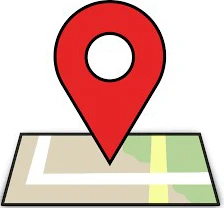There are various types of hotels in Canada, such as stately, world-famous hotels and family-run bed and breakfasts in the countryside. Canada’s lodging options range from comfortable and beautiful country inns to convenient motels. You can rent a cottage in a scenic spot, check into an elegant town apartment or stay at many hostels. You can always find a place to stay with help from the listings, which include descriptions of different destinations for all budgets and tastes.
Search for an Accommodation in Canada
Grading and Facilities
Canada has no government-sponsored hotel grading system; however, the voluntary program “Canada Select” is usually accurate. Each establishment is rated by a number of stars and has a corresponding star mark to identify its grade level. 4-star hotels do not always have the same quality of facilities depending on where they are located – a 4-star hotel in a large city may not have the same facilities as one with the same rating in a small upscale resort.
The Canadian Automobile Association operates an assessment system, mainly for motels and hotels on highways, that is deemed largely accurate. These ratings are considered more consistent than many unofficial ones. Central heating works efficiently country-wide, but air conditioning is only standard in most of the country during summer. This includes national park lodges and cooler coastal regions or central regions in cooler northern regions. Cable TV, radio, irons, ironing boards, and coffee-making facilities are standard. Private bathrooms are usual. You need to specify a bathtub or shower when booking a double room.
Prices
Hotels vary in rates, but prices are discounted in the low season. The top hotel’s presidential suite may charge a daily rate of over Can$1,000, while hiker’s hostels provide dormitory beds for as low as Can$25 a night. Budget hotels and B-and-Bs charge Can$50–75 a night per person. Some prices rise in the high season, but rates are discounted in the low season.
Reservations
Generally, advance reservations are always recommended for main cities’ festivals, conventions, or sporting events. Provincial tourist offices or airlines will assist in suggesting and arranging bookings.
Children
It is easy to travel with children. There are usually cots or junior-size beds in parent’s rooms at major hotels. They also offer babysitting services. A parent may need written consent from the other parent if traveling with children. This website provides more information on citizenship and immigration policies; https://www.canada.ca/en/services/immigration-citizenship.html
Disabled Travelers
New public buildings have wheelchair access for those that need it. However, many hotels are older and do not have such accessibility, so you should always inquire if this is important to you in advance.
Luxury Hotels
Though the major cities in Canada have hotels from different periods and styles, in the late 1980s and early 20th century, château-style hotels are prominent. Four Seasons, Hilton, Radisson, and Sheraton, are some luxury chains operating hotels in Toronto, Montreal, Calgary, and Vancouver.
Chain Hotels
In Canada, you can find many franchise brands with hotels or motels in different styles and prices. Popular among family travelers and business people, many offer offices for faxing, e-mailing, or options for “home officing”. Childcare facilities are also of good quality.
Efficiency Apartments
There are many options in Canada besides the typical cottages. Motorhomes and RVs are gaining in popularity, and they come equipped with amenities like refrigerators and bathrooms. Campgrounds are found all over the country and include lush fields in the south to insulated zones in the north where some of the Inuit live. You can stay at a hotel with various amenities and differentiating factors. Sometimes, these may include a connection for your electronics, laundry facilities, and a general convenience store. To many, living in a cabin or cottage is Canadian. They offer a lot of rural homes to rent, which are usually well-equipped and close to attractions. National parks offer you lodges and campgrounds as well.
Bed-and-Breakfasts
In Canada, there’s a growing trend of bed-and-breakfasts – each with its personalized service, friendly local face, and insight into the region’s way of life. Find a friendly Bed and Breakfast on the Atlantic Canada coast. They offer four-room rentals and are in historic towns. You can find a complete list of them from the Canadian Tourism office.
Accommodations Taxes
When you travel, you will be subject to two taxes on top of the basic tariff. The first is Provincial Sales Tax (PST), which varies from province to province and ranges between 5 and 12%. The PST must be paid on accommodation and other transactions as well. Implementation varies by province – Alberta only levies the PST on hotel and campsite stays, while B-and-Bs are tax-free. GST is a 5% charge on most hotels and accommodations. In some provinces, the GST and PST are combined as an HST of approximately 13%. In Nova Scotia, New Brunswick, Newfoundland, and Labrador, the HST of 13% replace the GST. Outside of small hotels which might not charge the GST, it applies to all hotels. The rebate program for residents was eliminated in April 2007.
Conclusion
Thank you for reading our guide on finding the best accommodations in Canada. In this article, we have outlined a selection of different types of accommodation found in Canada and provided information about where to find them and what to expect. Whether you are looking for an affordable overnight stay or something more permanent, Canada has a range of choices available that will suit your needs. We hope this guide has been helpful and that you will soon spend some time in beautiful Canada!
